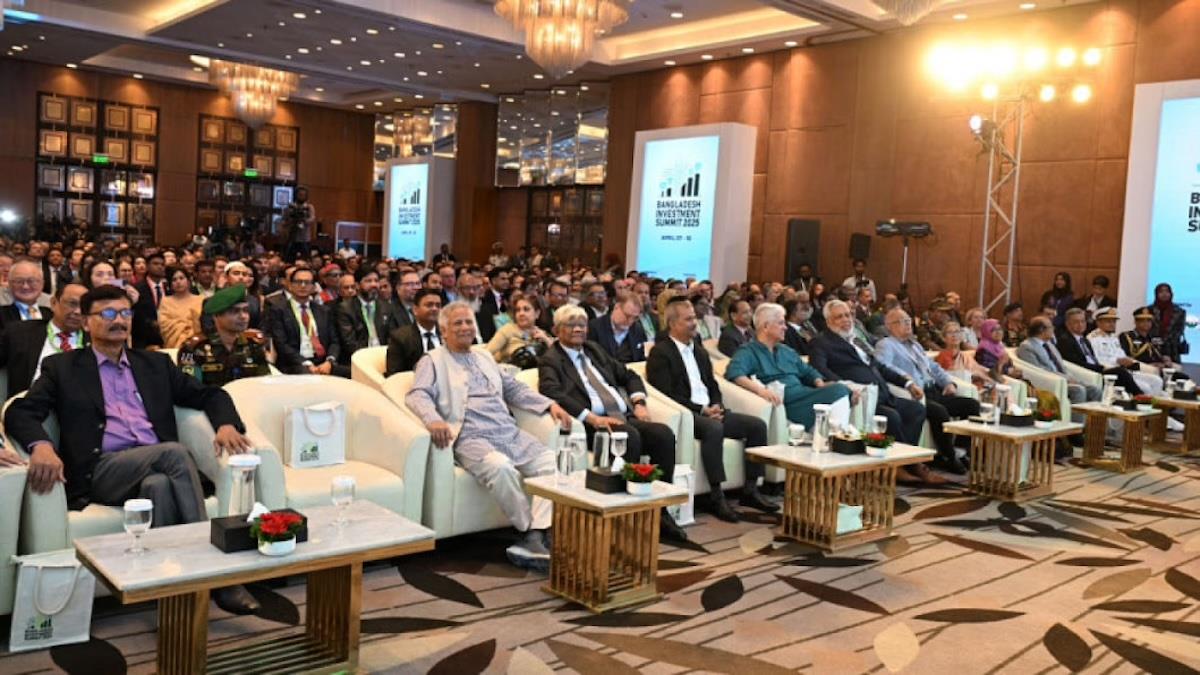Bangladesh Has Strategic Opportunity To Rebalance Foreign Policy
Global geopolitics is shifting toward a more fragmented, conflict-driven order, and small states like Bangladesh find themselves at a juncture, especially in the US-China rivalry. The post-Cold War dream of cooperative globalization is fading into a world of military flashpoints, economic protectionism, weaponization of trade and uncertain alliances. In this changing landscape, the question is no longer whether small and medium-sized states like Bangladesh can stay neutral, but how to stay relevant, stable, and strategically aligned.
Near Bangladesh, long-standing regional disputes such as the India-Pakistan conflict have been followed by the ongoing, unresolved Thailand-Cambodia border tension. Closer to home, Myanmar's protracted civil war brings further destabilizing effects for South Asia, adding layers of humanitarian, security and diplomatic challenges for its neighbors Bangladesh foremost among them.
These recent conflicts are certain to have cascading effects on global trade. We are already witnessing international trade becoming increasingly protectionist. In the context of the US-China rivalry and new US tariffs, Bangladesh should not focus solely on trading with major powers.
Instead, its foreign policy must be diversified through multidirectional partnerships, especially with rising and responsible middle powers , which sit below the great powers but exert influence over global politics and have considerable economic, political, military or diplomatic strength.
The age of great power tensionsBangladesh's foreign policy has mostly relied on great powers – for security and geopolitical reasons but also in matters of trade and defense. In terms of geopolitical alignment, Bangladesh maintains a delicate balance among China, India, and the United States. By leveraging this pragmatic strategy the country has reaped many benefits over the years. However, leaning solely on major powers, no matter how strategic, poses risks to sustained resilience.
Dependence on them makes Bangladesh more exposed to their strategic calculations, and, these powers have significant geopolitical ambitions in the region. Therefore, limiting key foreign relations to just major powers cannot help Bangladesh emerge as a relevant power on the global stage. This was evident in the recent US tariff case, where Bangladesh faced sudden and severe challenges after the United States imposed a 35% tariff on its exports.

Legal Disclaimer:
MENAFN provides the
information “as is” without warranty of any kind. We do not accept
any responsibility or liability for the accuracy, content, images,
videos, licenses, completeness, legality, or reliability of the information
contained in this article. If you have any complaints or copyright
issues related to this article, kindly contact the provider above.
Most popular stories
Market Research

- Latin America Mobile Payment Market To Hit USD 1,688.0 Billion By 2033
- BTCC Announces Participation In Token2049 Singapore 2025, Showcasing NBA Collaboration With Jaren Jackson Jr.
- PLPC-DBTM: Non-Cellular Oncology Immunotherapy With STIPNAM Traceability, Entering A Global Acquisition Window.
- Bitget Launches PTBUSDT For Futures Trading And Bot Integration
- Ecosync & Carboncore Launch Full Stages Refi Infrastructure Linking Carbon Credits With Web3
- Bitmex And Tradingview Announce Trading Campaign, Offering 100,000 USDT In Rewards And More


























Comments
No comment